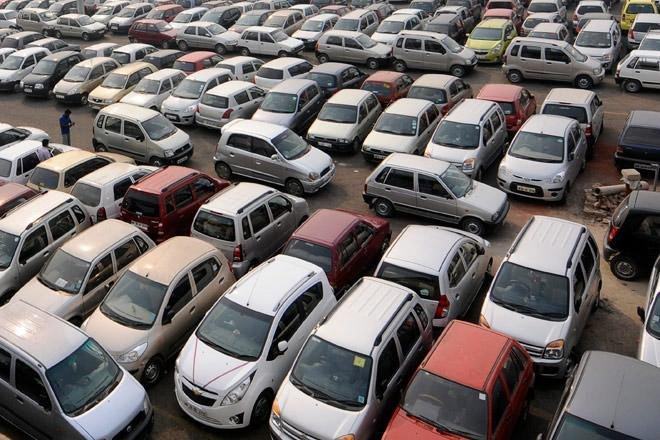Currently, Nigerians operating in vehicle importation sub-sector are counting their loses over the introduction of new tax regimes on imported used vehicles by the administration of President Muhammadu Buhari.
Before the administration, Nigerians operating in the vehicle importation sub-sector have enjoyed lower taxes and import duty on imported used vehicles and that have allowed the sector to grow.
Infact, the vice-President, Prof. Yemi Osinbajo, had promised clearing agents during the electioneering campaign that the duty imposed on imported used vehicles by administration of President Goodluck Jonathan, would be reviewed downward because the Nigeria auto industry was still in an infant stage.
However, despite the assurances, the sector have been experiencing increase in import duty, taxes and levy, thereby, stunting the growth.
For instance, the outgoing administration of President Muhammadu Buhari, over the weekend, announced a new tax regime for new tax regime for imported products.
Dealers Kick As Federal Govt Slams Fresh Taxes On Tokunbo Vehicles, Others
The circular titled, ‘Approval for the Implementation of the 2023 Fiscal Policy Measure and Tariff Amendment, by the Federal Ministry of Finance, Budget and National Planning,’ and sent to some ministries and government agencies, said imported vehicles with 2000cc (2 litres) to 3999cc (3.9 litres) engine will pay an additional charge known as Import Adjustment Tax (IAT) levy of two per cent of the value of the vehicle while vehicles with 4000cc (4 litres) and above engines will attract IAT of four per cent of their value.
The new levy is in addition to the 35 per cent import duty and 35 per cent levy being paid by importers of vehicles.
However, vehicles below 2000cc, mass transit buses, electric vehicles, and locally manufactured vehicles are exempted from the IAT levy.
Though, in developed climes, taxes and levies are introduced on imported used products to grow the local industry, but the Nigeria auto sector is presently not growing and stakeholders have continually argued that introduction of further taxes on the sector would increase inflation and affect the nation’s economy.
They argued that inter-modalism in thr country is still at infancy stage. Nigerians depend solely on the land transportation as the sole aim of moving Cargoes, transporting human and produce from farm to the final consumers and connecting states across the country.
The development of rail in the country is still at its infancy stage while water transportation is currently under-utilised and the land transport which is currently and only means of transportation heavily taxed.
Speaking to LEADERSHIP, over the introduction of the new tax policy, the President, United Berger Motor Dealers Association (UNBMDA), Metche Nnadiekwe, the new taxes would cripple imported used vehicles sector in the country.
According to him, with the introduction, the prices of used vehicles would be above the reach of middle class Nigerians.
“For me I don’t understand this type of thing. The implication is that it is not only the people who are into auto business that will feel the impact of the new levy but the whole Nigerians. Some investors will leave the business because they are unable to cope with the increment because by the time they use the new tariff to clear their vehicles, they will include the money into the vehicles at point of sales. The buyers who are middle-class Nigerians will be the one to suffer it more. So I don’t understand this type of a thing,” he said.
Also speaking, the director, Centre for Promotion of Private Enterprise (CPPE), Dr Muda Yusuf, said no justification for high import duty on imported used vehicles by the government.
According to him, there is an increasing affordability problem for Nigerians with regard to vehicle acquisition, especially by the middle class of the society.
He further stated in his statement to LEADERSHIP that the cost of locally assembled vehicles are beyond the reach of most Nigerians, contrary to the assurance given by government at the inception of the auto policy.
“It is difficult to justify this high import duty on vehicles because Nigeria is about 90 percent dependent on road transportation which underscore the importance of motor vehicles in the economy. There is an increasing affordability problem for citizens with regard to vehicle acquisition, especially by the middle class of the Nigerian society.
“Cost of locally assembled vehicles are beyond the reach of most Nigerians, contrary to the assurance given by government at the inception of the auto policy. There is limited access to credit for vehicle purchase by Nigerians. Over 90% of purchases are done out of pocket, which is extremely challenging. And where the credit facilities exist, the interest rates are outrageous, between 25-30 per cent
“The economy has experienced huge exchange rate depreciation which had already exacerbated vehicle acquisition cost in the first place. It is therefore insensitive of policy makers to impose a whooping 40 per cent import duty on vehicles in an economy where there is no mass transit system and where vehicle ownership has become a necessity, especially for the middle class.
“There is an additional two per cent and four per cent green tax, depending on the engine capacity of the vehicle. This translates to import duty of 42 percent or 44 per cent depending on the engine capacity of the vehicle.”
Yusuf, the immediate director general of Lagos Chamber of Commerce and Industry (LCCI), said the policy would increase vehicle smuggling and increase cost of vehicles.
He said, “ the policy would lead to high transportation cost as vehicles costs increases, risk of increased vehicle smuggling, especially through the porous borders.
“The number of rickety vehicles, especially commercial buses will remain high as replacement cost becomes prohibitive. The middle-class will continue to contend with affordability problems.”





